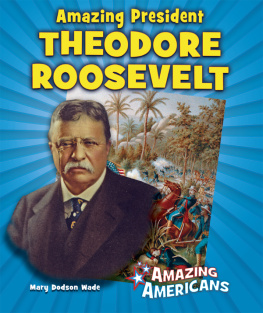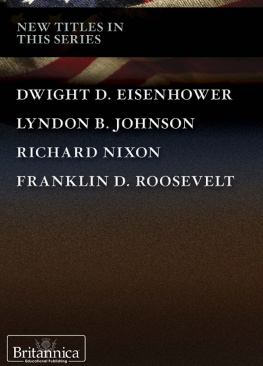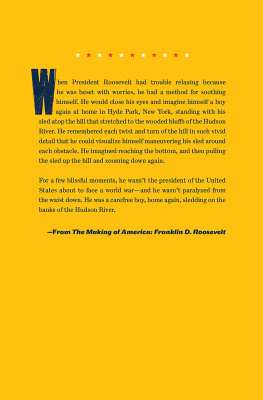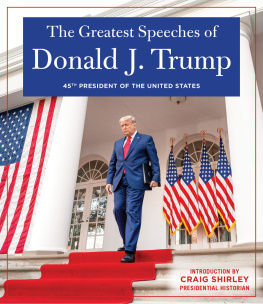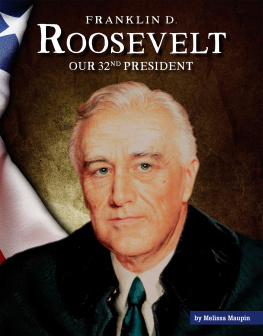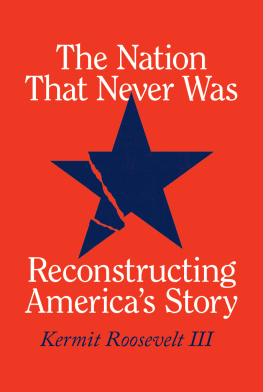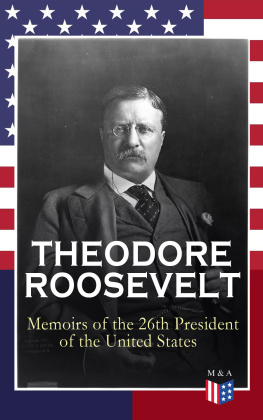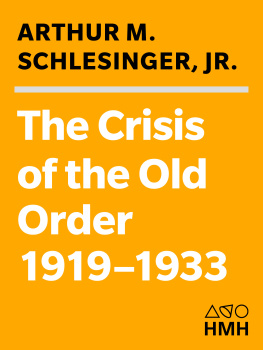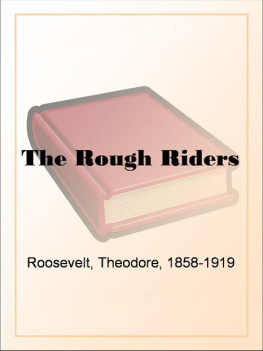First published in 1933 by Little, Brown and Company
This edition first published in 2018 by Routledge
2 Park Square, Milton Park, Abingdon, Oxon, OX14 4RN
and by Routledge
711 Third Avenue, New York, NY 10017
Routledge is an imprint of the Taylor & Francis Group, an informa business
1933 Taylor & Francis
All rights reserved. No part of this book may be reprinted or reproduced or utilised in any form or by any electronic, mechanical, or other means, now known or hereafter invented, including photocopying and recording, or in any information storage or retrieval system, without permission in writing from the publishers.
Publishers Note
The publisher has gone to great lengths to ensure the quality of this reprint but points out that some imperfections in the original copies may be apparent.
Disclaimer
The publisher has made every effort to trace copyright holders and welcomes correspondence from those they have been unable to contact.
A Library of Congress record exists under ISBN: 34000083
ISBN 13: 978-1-138-55263-0 (hbk)
ISBN 13: 978-1-315-12304-2 (ebk)
Roosevelt and His America
BY BERNARD FA
FRANKLIN: The Apostle of Modern Times
SINCE VICTOR HUGO: French Literature of To-day
THE TWO FRANKLINS: Fathers of American Democracy
ROOSEVELT AND HIS AMERICA
T HE world seems to be enjoying an era of bad feeling. Europe misunderstands the United States, not so much because it knows nothing of America, but because it has a too dry and intellectual knowledge of America and has ceased seeing it as a living unit. It has heard so much about American standardization, American prosperity, American methods, that it has forgotten America itself. For most Europeans America is a big factory, where everybody is busily engaged in following the rules elaborated by a few famous engineers, such as Messrs. Ford, Edison and Hoover, and by Owen D. Young. America appears as the incarnation and summing up of the industrial civilization of to-day, and as such it is condemned and denounced. Nobody seems to remember that America is a nation which has already gone through several stages and kinds of civilizations and whose real greatness has been to forge ahead and develop from generation to generation constantly new forms of social life and human culture.
My first aim and hope in writing this book was to remind Europeans that America is a force, not a formula.
It would have been easier to praise America, but it would have led nowhere.
I should have enjoyed writing an Apology for the United States, or a Eulogium of the new World. But it would have been useless. I might have put asleep a few people; I should not have reached their minds or their hearts.
But President Roosevelt gave an opportunity to study American energy and initiative and its freedom from all formulas and methods. During the eventful months of 1933 the President and the people of the United States have proved that they were able to discard the past entirely everything, even the most valuable and cherished tradition to keep life and activity in the country, to keep the nation alive, working and going ahead.
In contrast with eight years of blind prosperity these eight months of lucid sacrifice are one of the most enlightening sights that the modern world has seen, and one of the most hopeful.
To make it understandable to the European reader, I had to begin by taking his point of view, which may sometimes surprise the American reader; and to give an accurate picture, I had to be somewhat outspoken and crude. Politicians all over the world have the habit of clothing their acts and methods with such elegant words and philosophic formulas that, when they are translated into precise English, the whole thing looks surprising. This is particularly true of the years 19201930, during which the whole world lived in a fools paradise and fed itself upon the most childish optimism. A study of France, of England, of Germany, and of practically each of the great countries of the world would show very much the same kind of things going on there as in America during that period. As a matter of fact, the whole world was then imitating America, and following her as closely as possible. That is why in these pages I have not tried to praise or to blame America. I do not feel that anybody has a right to do it, but I thought that for the sake of the world and of America it was better to speak plainly.
The United States is a great nation, probably the strongest nation of to-day, and their influence on the evolution of the century cannot but be dominating. Their actions and decisions will have fateful results throughout the world and for the ages. Even though they are not anxious to assert this world-leadership and to exploit this imperial supremacy, they will sooner or later have to recognize this situation. This book, which is less a picture of what happened in the United States than a picture of the United States as they acted and as the world saw them while they were acting, may help to bring and prepare this hour. I should be very glad if it did.
A nation is not great because it has never made a mistake or experienced any failure, but because of the continuity of its life and of the energy of its reactions at critical hours.
That is why I have thought it useful to study the year 1933; and the period that led to it, the great American crisis, and the great American revival.
BERNARD FA
Part One
In Search of America
A MERICA is always a new subject, for she is always a new country. From the outset she was dubbed the New World, and the New World she has remained; it became a habit with her and one which has been a constant source of amazement and irritation to the Old World.
America changes so rapidly! With every new President she assumes a new aspect, just as an amiable woman changes her hat and her expression to please each new lover. We have witnessed the imperial and industrial America of Theodore Roosevelt, the idealistic and democratic America of Woodrow Wilson, the bourgeois, banking America of Calvin Coolidge, the technical, depressed America of Herbert Hoover. Now Franklin Roosevelt, with a smile, introduces us to a new America, an emancipated, liberal, slightly fantastic America an America which likes young peoples company and despises elderly bankers. Let us hurry to make her acquaintance while she is still young and attractive.
This book must not be blamed for being hurried; life passes hurriedly in America, and, if the image is to be faithful, it must conform to the rhythm of its model.
It must be forgiven if it is sometimes gay or flippant; whatever people may say, gayety is no more foolish than sorrow, nor yet more deceitful, and our modern life, though it is by no means satisfying, at any rate affords us a picturesque spectacle, of which it is well to take advantage. The spectators pay so high a price that they have every right to enjoy the spectacle.


